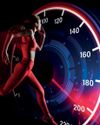
How does sleep help us process information?
There’s convincing evidence that memories are laid down during deep ‘slow-wave’ sleep. In your waking hours, when brain cells learn information, it goes into the hippocampus, the memory area of the brain. The memory is still quite fragile, and during sleep, neural networks are activated between the hippocampus and the rest of the brain. Using EEG [electroencephalography], we see cycles of brain waves that are important for strengthening these memories. We’re looking into insight – deeper, qualitative information processing – which is more of an emerging field.
How did you test whether naps improve insight?
This story is from the January/February 2020 edition of Very Interesting.
Start your 7-day Magzter GOLD free trial to access thousands of curated premium stories, and 8,500+ magazines and newspapers.
Already a subscriber ? Sign In
This story is from the January/February 2020 edition of Very Interesting.
Start your 7-day Magzter GOLD free trial to access thousands of curated premium stories, and 8,500+ magazines and newspapers.
Already a subscriber? Sign In

HOW TO MASTER YOUR METABOLISM
Ready to welcome a leaner, healthier you? It's time for a metabolic makeover. With a few simple, research-backed changes, you can supercharge your body's calorie-burning

A BLUEPRINT FOR ANTI AGEING
Science says it's time to rethink - and take control - of our body's age. Here's how to slow, halt and potentially turn back your biological clock

THE BROKEN MIRROR
Body dysmorphia - the all-consuming obsession with perceived flaws in our looks - is sweeping the globe. One in five young people is thought to be affected. What can be done and how is tech changing the way we see ourselves?

SCROLL REVERSAL
Losing days by endlessly scrolling on your smartphone? You're not alone. Perhaps neuroscience can help us beat the urge

Going back to the moon
ARTEMIS AND A NEW DAWN OF LUNAR EXPLORATION

SAD CLOWN PARADOX: WHY TEARS OFTEN LIE BEHIND THE LAUGHS
Mental health issues are common among comedians and performing is just one way they can self-medicate

INDOOR AIR POLLUTION: HOW COOKING CAN DAMAGE YOUR DNA
From roast dinners to scented candles, there are potentially harmful pollutants lurking in every home

FARM OF THE FUTURE
Join the BBC's Planet Earth III film crew and go behind the scenes in the city farm that's transforming fields into towers and running almost everything with robots

COULD ONE BOMB DESTROY THE WORLD?
How big a bang are arms manufacturers capable of creating?

THE THREAT OF DAY ZERO
Queues at public water taps could become normal. What can we do to avoid them?